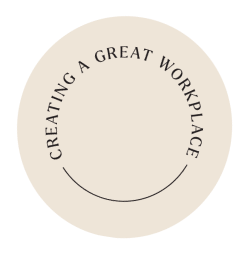Featuring: Jeff Huber
This month we are profiling Jeff Huber, Chief Executive Officer of Home Instead, Inc. As a leader or as a CEO, we hope the content inspires you to go build a culture of enduring greatness in your own organization!

1) Jeff, you are CEO of Home Instead, Inc. For those not familiar, can you tell us about the beginnings of Home Instead and your mission?
Home Instead Senior Care was founded 25 years ago by Paul and Lori Hogan to care for Paul’s grandmother, Eleanor Manhart who is the inspiration for our company. She was in her late eighties at the time and was the matriarch of a very large family. She had twelve children, 60 grandchildren, and 50 great grandchildren, most of whom live near Omaha, NE. But Grandma Manhart was living alone and was very frail, and the family deduced that she was nearing the end of her life’s journey and had only maybe months left. So, they called a big family meeting and a couple of decisions were made to help her have the best end of life experience she could have. One was that there wasn’t going to be a nursing home. They were going to move Grandma into the home that Paul grew up in, his mother’s home. And two, they were all going to pitch in and take turns being with Grandma to do the things she wanted to do like have a meal or go to mass. And despite all of that help they had in that large family, they were still struggling to put together a schedule where they could they could really help where she needed help.
That was the signal in Paul and Lori’s brain that said, what do other families do that don’t have this these kind of resources? That is how the need was identified. But the other thing they discovered was that when they surrounded Grandma with that kind of support and social interaction, she regained the will to live. Instead of having only months left, she actually went on to have 11 very fruitful years. It just really enlightened them to understand the critical importance of social interaction and maintaining connection to people, things, activities that give you meaning and purpose in life. And as we get older, so often, those connections get lost. That’s really what Home Instead is all about: connecting people to the things, the people, and the activities that give them meaning and purpose in life. Our mission is to enhance the lives of older adults and their families. From that idea to today, we have about 1,100 franchise offices operating in 13 countries. This year we’ll provide more than 80 million hours of highly personalized care to our clients so they can stay living at home. Today we’ll be in probably 90,000+ homes serving 90,000+ seniors around the world, trying to help them stay connected and have a great aging experience.
Our business today has continued to be about being the best home care company in the world. So, we’ve got a big strategy around how we do that and using technology to help enhance the highly personalized care. But we also see our industry as a massive global issue that needs leadership. So a big part of our strategy is that we feel a calling to help bring together the public sector, the private sector, and the social sector so that together, we can create change that allows everyone to have the aging journey that they deserve and want. As a result, we do a lot in thought leadership, public policy, government affairs, and research in order to be a convener and a catalyst for change. As a company and as a brand, we’re limited in the number of people that we can touch directly with our services. But we feel a social purpose to provide everyone with something, whether it’s a free resource, some education, a program where we can help a local nonprofit in the aging space, to our own innovative programs. For example, we have a really neat movement called Ready to Care where people sign up and every Monday they get a text message with a little bit of education about an aging issue and a care mission. So, the text might be as simple as “say hi to a senior” with some education about the impact of social life, or it may share about how to interact with someone with dementia. The whole idea is to create this community of care, because the need for care is so vast already and growing exponentially as our society ages. We want to be the kind of organization that gets communities to rise up and help take care of our neighbors. So, it’s not just about being a great home care company and providing awesome service, it’s really about trying to address major societal issues and help inspire the world to rise up and care for our aging loved ones and neighbors.

2) The Home Instead Global Headquarters has been named one of Omaha’s “Best Places to Work” for the past nine years. What role has the values and culture of Home Instead played in this?
The values are really the foundation of our culture and they’re what guides us every day in terms of not only the service we provide, but in our desire to be an employer of choice. We want to be a destination employer that has a reputation for taking awesome care of its people and where people can be fulfilled in not only the job they do, but also in their total life. I feel a particular responsibility that the role of the employer isn’t just to extract value from its employees, but it’s to help their employees have a complete life and an integrated life and I think employers have a job to do there with regards to taking care of their people.
That really comes from the core values. So our first one, that Laurie and Paul really established from day one, is to honor God in all we do. And it’s not that we’re trying to cram that down everyone’s throat, but we’re clear about who we are and that we feel like we have a higher calling to our work and we answer to a higher authority. The second core value is about treating each other with dignity and respect. We’re here in Omaha, Nebraska, and we feel like it’s a very hospitable place – maybe the most polite place on Earth – and we’re a deeply humanistic organization. We take care of people in the most intimate setting: the sanctity of their own home. Therefore, it’s incumbent upon us to really treat our people with the highest level of dignity and respect. The third core value is to encourage growth in ourselves and others. None of us is a finished product – we’re constantly learning, growing, and evolving as people and as employees. And so having that spirit of continual growth really drives us and leads toward a very energetic culture. The fourth core value is service to others. That’s about always trying to up our game, never being satisfied with the status quo, and always trying to do and be a little bit more.
In addition to those core values, I think there are other values that are just inherent to who we are. We take our work seriously, but we don’t take ourselves seriously, for example. Financial management in an inherent value; we have a real mission and calling but I always say, no margin, no mission. That’s all a long way to say that our values have really shaped the culture and the culture has allowed us to attract an amazing group of team members here in Omaha, but also an amazing group of franchise owners around the world. They see something that they want to be a part of that allows us to continue to attract great people, which in turn enhances and continues to grow the culture.

3) When someone purchases a Home Instead franchise, how do you go about transferring that global headquarters culture or do you try to? How does that process work? Talk to us about the intersection of corporate culture and franchise culture.
Great question. First, I think we do a really good job of trying to select for culture first. When somebody wants to be a part of Home Instead Senior Care, we really get to know them and what their values are, and we’re clear about who we are and what our values are, because there has to be a good fit there to begin with. Oftentimes, we come across people who are searching for some sort of business opportunity but it just hasn’t clicked for them. And then when they come to Home Instead, it just clicks. There’s something about the business that connect with them and their story. If it’s all about making money, then they probably need to look for a different business opportunity. Yes, it is a great business, but your motivation needs to be about making an impact on people’s lives. And so we’re really careful about probing for their motivations and who they are as people. Then, we’re really clear about who we are and that’s either going to resonate with them or not.
For so long when we were a small organization, it was just very organic and sort of easy to make the culture happen. As we grew and started expanding our footprint, we realized we’ve got to get ahold of this and be very deliberate and intentional about building culture. We did a big internal branding project to distill down the essence of what the Home Instead culture is, put it into words, and added some simple tools and phrases so people could take the culture and could scale it. Build trust, take the lead and share your heart are the three core principles of what we call “living Home Instead.” And then within each one of those are very clear examples so that we can all have a common language around our culture as we grow. Other ways we scale the culture is through events, communications, and trainings. We have a big annual convention for all of our franchise owners. I view that as a key cultural event where everyone can come and drink from the well again and get refreshed on what it means to be part of Home Instead. Internally at Headquarters we have an event every January called Core, which is a nod to our core values, where we get on the same page in terms of the year ahead and about who we are as an organization. All events should be viewed as key cultural opportunities; the question to ask yourself is, “how can this event reflect and enhance the culture?” And then the last thing I’ll say is I talk to every training class of new franchise owners and I always, always tell them, yes, we have a franchise agreement, but we also have this higher agreement or covenant, if you will, that your job is to take the immersive cultural experience that you have here while you’re in training in Omaha and then take that back and make that happen locally.

4) As CEO, what do you believe your primary role is in developing culture? And can you specifically speak to how you use the LinkedIn platform to do that?
No one person owns the culture. It resides in all of us and we all have a responsibility to it. That being said, I do think the CEO has a unique role. There’s just one CEO who can model the culture and make it clear how important it is – that’s not something that can be delegated. I view it as my primary job now; internally facing it’s about clarity of cultural expectations and externally facing, it’s about portraying the soul of the organization for other stakeholders. I don’t get hung up on the title, but it does carry with it the mantle that allows you to be that example for others. The role of any leaders is to model, first and foremost, so when it comes to the culture it’s incumbent upon the senior leadership and the CEO specifically.
What I try to do on LinkedIn is just be really authentic. I figure if something is on my mind, it must be on somebody else’s mind too. I get intimidated by some folks if they’re not real, when they seem like larger than life. So, I try to get in touch with what I’m feeling or experiencing and then convey that in a real way and I think people identify with that. For example, we deal with people in the later stages of their life and I came across an organization called End Well which I shared about on LinkedIn. It sparked my interest because I just turned 51 and at some point you kind of figure, I’m playing on the back nine of my life now, and so your perspective changes and I’m trying to be deliberate about how I want to live the rest of my life. I figure that other people are having those same sort of existential questions. And so that’s an example of just being real about what’s going on with me and it resonates with people because they’re experiencing the same thing.

5) As a follow up, what kind of challenges have you experienced in culture-building and how have you overcome them?
I think the biggest challenge in culture-building is being deliberate about its evolution and scaling it. Culture is something that needs to evolve as the organization evolves. I always say culture is many things but it comes down to what are your values, and what are the key behaviors and expectations? Values don’t change over time but behaviors and expectations need to evolve to be relevant to the business. We’re an organization that is constantly changing. We’re at the forefront of a rapidly emerging industry and it’s very competitive. We have to constantly evolve and change how we do things. People can misinterpret that for, oh, the culture is changing. I take that really personally. No, it’s not – the core values aren’t changing. But how we do things is changing. To me, that’s been the most difficult part; distinguishing between who we are and what we do. Who we are doesn’t change, the soul of the organization doesn’t change, but what we do and how we do it, that has to evolve. And doing that at scale in a franchise system can present real challenges. People can tend to naturally resist change and it’s kind of an easy out to say, “oh, the culture’s changing.” That’s been my biggest personal challenge including learning how to do that at scale through franchising, in which you have limited controls in a decentralized system. I’ve learned that it’s about providing examples and tools and deliberately leading people through the culture evolution.
6) We have heard many CEOs say that the Unstoppable Cultures Fellowship gives them a chance to step away from the day-to-day grind, and think about ways that they can improve culture in their organization. Was this true for you? What were the main takeaways that have been instrumental in improving your organization’s culture?
One of the key insights I took away was this whole notion of telling stories. And it came at a really great time for me because that was right before we started our 25th anniversary year. And I thought, OK, so what a great way for us to celebrate the first big chapter of our history by recalling all these great stories from the past. I just met a brand new employee this morning and we walked into this beautiful office. And, you know, it wasn’t like this when I joined 22 years ago. I had my kids over the day and having my mom talk about her childhood with them was just eye opening. And they were thirsty for that because it leads to a deeper understanding of what it was like and how our family is what it is. I think the same is true in telling stories in our organizations so that new team members can understand who we are, where we’ve been, and how we got here. That was a key insight for me and it came at a great time because we’ve done a lot of fantastic storytelling over this last year. And we’ve included our franchise owners in that because they all have their own stories that have shaped your culture.
The Fellowship also caused me to realize we need to do a cultural audit. You gave us a great tool because all these things, whether it’s an application, or an interview, or a training, or whatever it might be, these are all cultural touch points. While I think we do a great job of that, getting back to core values of always trying to improve upon ourselves, it might be time for us to evaluate, can we can we do this a little bit better? How can we evolve the culture a little bit to be more relevant to what we need it to be going forward? I’m sending our Vice President of HR to UCF this year and when she gets back, we’re going to work on a cultural audit together and map out a plan so we can be deliberate and intentional about shaping this wonderful culture we have for the next chapter of Home Instead.
MEET JEFF

As Chief Executive Officer of Home Instead, Inc., the leading global provider of home care services for older adults, Jeff Huber leads the company and its franchises in their commitment to addressing the challenges of the aging global population by promoting consumer choice in care. In his four years as CEO, he has also increased the organization’s commitment to leadership development and training to empower professional and family caregivers and to advance the mission of Home Instead Senior Care: To enhance the lives of aging adults and their families.
Jeff’s passion for creating a better world for all individuals to grow older in extends beyond providing the highest quality care to Home Instead clients. He works to advance support and policies for working family caregivers, grow and professionalize the global caregiver workforce, and inspire individuals to care for and serve the senior community.
Jeff is a frequent speaker on aging topics at events on the national and global stage, including the Silver Economy Forum, the Financial Times Dementia Summit and the Milken Future of Health Summit. He is a member of AARP CEO Champions, Fast Company Impact Council, G100 Network and the World Economic Forum, among other board and leadership positions in his industry and community.
In his role as CEO, Jeff oversees strategic planning and advocacy for the Home Instead Senior Care network, provides leadership on key initiatives and manages the day-to-day operations of the Global Headquarters.
Jeff obtained his law degree from Creighton University in 1994 and worked in litigation for 4 years. He then joined Home Instead Senior Care as a Franchise Development Manager when the organization consisted of 125 franchises. Today, Home Instead Senior Care provides more than 80 million hours of care annually through more than 1,200 franchises offices in 12 countries.
Together, we truly can build Unstoppable Cultures!
Sincerely,







